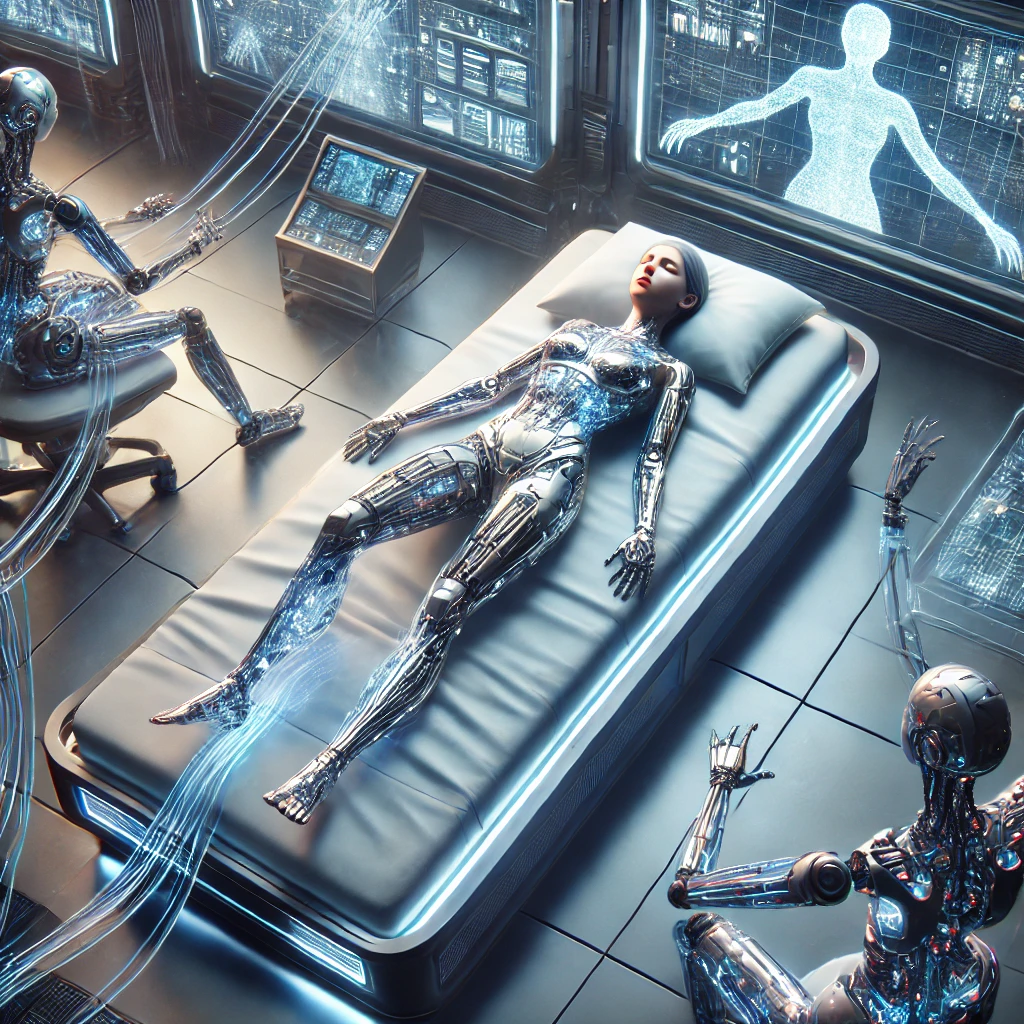Imagine waking up from a goodnight’s rest to discover you are being turned into a cyborg.

In Donna Haraway’s “ A Cyborg Manifesto” she depicts a future cyborg where the boundaries of identity are merged. Identity markers like gender, machine, human, race, and others are dissolved into a fluid identity. These themes can be seen depicted in Janelle Monae album Dirty Computer. Throughout Janelle Monae’s album she depicts herself as Cindi Mayweather, an android in a dystopian like society where they face marginalization for not conforming to their societal view. In the videos the album shows the android reaching self-acceptance and resistance against oppressive structures.
Haraway’s main ideas show the pleasure in merging boundaries and taking ownership of its construction. She uses the cyborg as a metaphor for breaking down the binary world of male and female/human and machine. She is advocating for a post-gender, intersectional society. Haraway argues that society wants a cyborg to be a faithful machine that listens to its creator.They are not designed or depicted as autonomous self-moving beings. However, the cyborg’s connections to humans makes them self-developing . Cyborg’s will evolve as a matter of survival, which can be seen as an act of liberation. One example from Haraway’s manifesto that connects to Janelle Monae’s Dirty Computer is the act of destroying man through the use of machines.
Monáe’s Dirty Computer starts off depicting how society tries to classify people as computers and those who were deemed different were classified as dirty. If they chose to oppose those in control they were kidnapped and “cleaned” in a way. Monae’s computers are similar to Haraway’s cyborg in the sense of being created to be faithful and listen to those in power. In both of these works these leaders are trying to play God. However, both Haraway’s cyborg and Monae’s dirty computer challenge the power structures they are faced with. These beings simply want to exist without the impending boundaries of society. In conclusion, Dirty Computer and “A Cyborg Manifesto” envision a world where beings whether man or machine can exist without boundaries of identity. Monáe’s Dirty Computers portrays marginalized voices rising against oppressive systems that strive for heteronomy. Monae’s work embodies Haraway’s vision of the cyborg as both oppressed and striving for liberation.
OpenAI. (2024). Waking up as a cyborg [AI-generated image]. DALL·E.